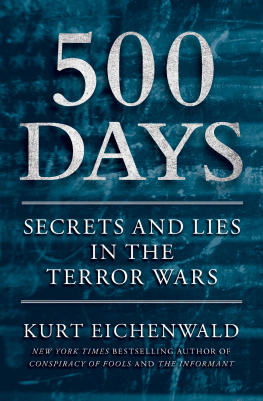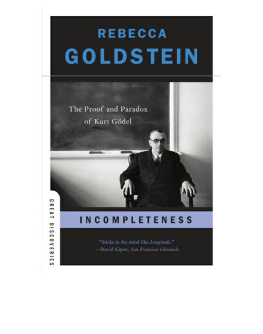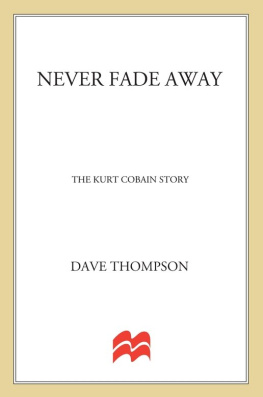Contents

To Frank Jordan
Teacher, mentor, friend and role model to untold numbers of boys and men, including me.
The interval between the decay of the old and the formation and the establishment of the new constitutes a period of transition which must always be one of uncertainty, confusion, error and wild and fierce fanaticism.
JOHN C. CALHOUN,
A Disquisition on Government

This is not the book I set out to write. Originally, I had planned to chronicle the Bush administrations response to terrorism from the day of the September 11 attacks through the end of the presidents second term in January 2009. The deeper I dug, though, the more I came to realize that my original strategy was off base. Instead, I concluded that every aspect of the terror wars flowed from judgments made in little more than five hundred days after 9/11554 to be exact. Everythingthe wars in Afghanistan and Iraq, warrantless wiretapping, detainee treatment, CIA tactics, and morecould be traced to those eighteen months. What followed in the nearly six years afterward was little more than reactions to those early decisions.
Equally important, I found that the strategy cobbled together in those initial days was not the creation of a single group of politicians or even of a single government. The Bush administration was important, but America did not hold a monopoly on shaping the multipronged assault on terrorists.
So, I changed directions. By concentrating my research on the rush of events over those 554 days, I would be able to lay bare the essence of a trauma that haunts the world to this day. I later decided that the full story could not be understood simply from a depiction of events in the corridors of power; this history was also shaped by the experiences of the powerless. Extraordinary rendition was not simply a policy adopted in government conference roomsit played out in real ways on real peoples lives, as did decisions about the application of the Geneva Conventions, the use of secret prisons, and the like. These experiences, sometimes horrendous, helped shape directions of international policies in profound and often unseen ways. I would be remiss in ignoring those individual consequences.
As with most histories, this endeavor entailed covering some now-familiar paths, although I was surprised by how often the accepted version of events proved to be inaccurate. A trove of additional evidencederived from years of conducting interviews, reviewing documents, and listening to secret recordingsexposed a vast array of previously unknown details that make the narrative of this era clearer and, in some cases, more shocking. Woven together, I believe these elements of the storythe known and unknown, the domestic and the international, the great and the smallreveal the heart of an epochal upheaval that historians will continue to examine for decades to come.
Readers looking in these pages for my view of these events will no doubt be disappointed. I have little faith in opinion, even my own. Instead, this book is meant to be a dispassionate history of this crucial time. And I have found there is little in these tales that is black-and-white. While there have no doubt been horrible decisions, there are few villains; the Bush administration and its allies did not want to impose a police state and its critics did not want to coddle terrorists. Few on either side acted with disregard to the concerns of the other; instead, each wrestled with finding the proper balance, as they saw it. I leave it to the readers to decide who, if anyone, was right.
KURT EICHENWALD
(June, 2012)

The White House |
George W. Bush | President of the United States |
Dick Cheney | Vice President |
On the White House Staff |
Andy Card | Chief of Staff |
Josh Bolten Deputy | Chief of Staff |
Karl Rove | Advisor |
Richard Clarke | Special Advisor on Cybersecurity |
Stuart Bowen | Deputy Staff Secretary |
In the National Security Council |
Condoleezza Rice | National Security Advisor |
Stephen Hadley | Deputy National Security Advisor |
John Bellinger III | Senior Associate Counsel |
In the White House Counsels Office |
Alberto Gonzales | White House Counsel |
Tim Flanigan | Deputy Counsel |
Bradford Berenson | Associate Counsel |
In the Office of the Vice President |
David Addington | Senior Counsel |
The Central Intelligence Agency |
George Tenet | Director |
John McLaughlin | Acting Deputy Director |
John Rizzo | Acting General Counsel |
In the Counterterrorist Center |
Cofer Black | Director |
Ben Bonk | Deputy Director |
Hank Crumpton | Special Operations |
Station Chief
Robert Lady, Milan
Field Officers
Gary Schroen
Gary Berntsen
Johnny Michael Spann
Dave Tyson
Jeffrey Castelli
John Kiriakou
Deuce Martinez
Consultants |
James Mitchell | Retired SERE psychologist |
Bruce Jessen | Retired SERE psychologist |
The Pentagon |
Donald Rumsfeld | Secretary of Defense |
Paul Wolfowitz | Deputy Secretary |
William Jim Haynes | General Counsel |
Whit Cobb | Deputy General Counsel |
Richard Shiffrin | Deputy General Counsel, Intelligence |
Alberto Mora | General Counsel, U.S. Navy |
Douglas Feith | Undersecretary for Policy |
Steve Cambone | Principal Deputy Undersecretary for Policy |
United States Central Command |
Tommy Franks | Commander |
With the Joint Chiefs of Staff |
Richard Myers | Chairman (from October 1, 2001) |
Hugh Shelton | Chairman (until October 1, 2001) |
Peter Pace | Vice Chairman |
Jane Dalton | Legal Advisor |
With the Naval Criminal Investigative Service |







![Darling - Back from the brink: [1000 days at Number 11]](/uploads/posts/book/197393/thumbs/darling-back-from-the-brink-1000-days-at-number.jpg)



